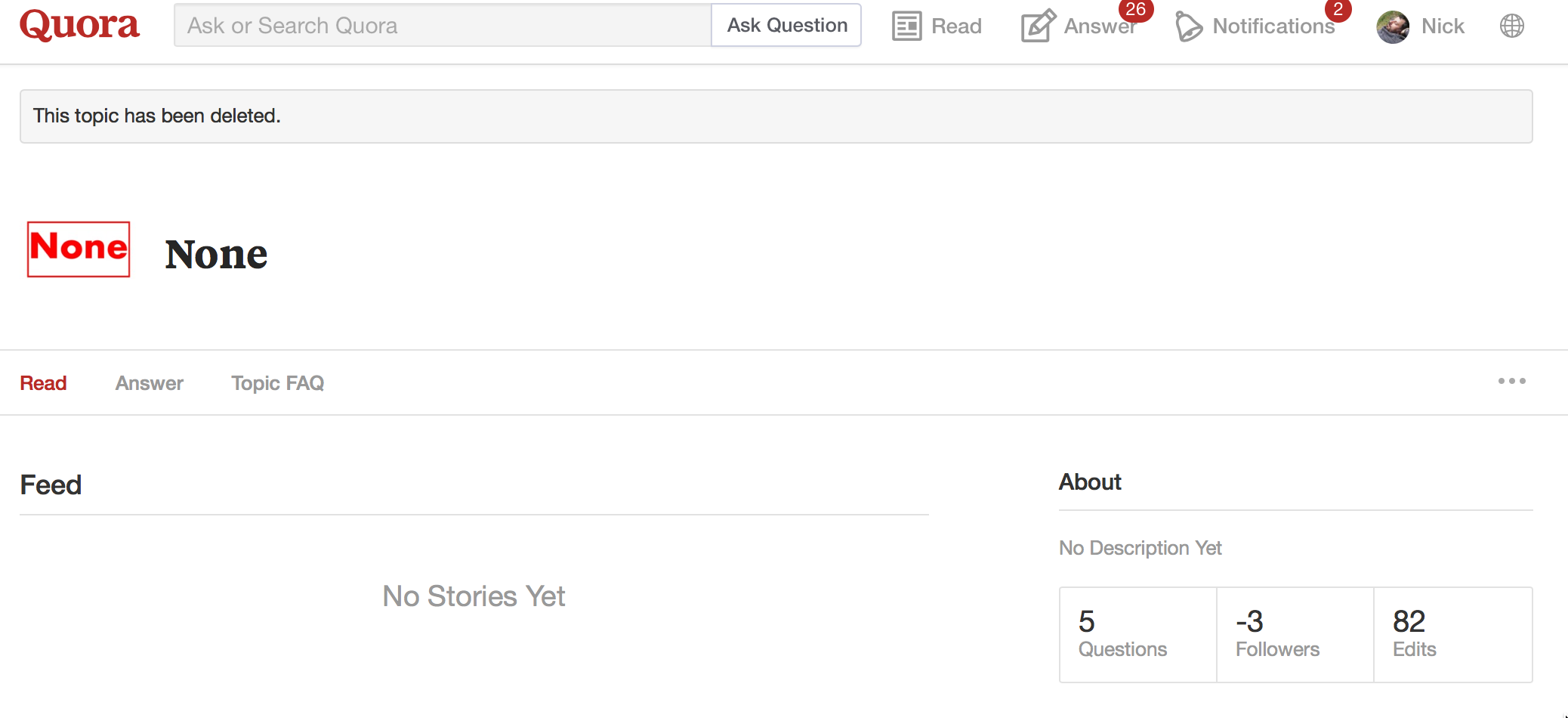Yes. It was never written unaccented, because it was never treated as a clitic. On the other hand, the unstressed variant κι was indeed never accented.
Author: admin
Do modern-day Greeks feel continuity with their ancient civilization like Indians or Chinese?
They proclaim it and they are taught it, and yes, they feel it.
But they feel it at a superficial level, as either ancestor-worship, or a totem to beat up Westerners with. Nick Nicholas’ answer to If your country had a slogan what it would be?: “When we Greeks were building Parthenons, you barbarians were still eating acorns.”
If you dig deeper in getting how the Ancient Greeks ticked, you’ll see some superficial similarities, which Modern Greeks seize on—the fractiousness, the love of the good life, the politics. And you’ll see a lot more difference in how they viewed the world, and realise that there’s a reason why Etonians felt Demosthenes was their forebear rather than the Modern Greeks’.
But then, as I said in Nick Nicholas’ answer to Greeks, which do you identify most with: Ancient Greece or the Byzantine Empire?,
the marble looks like some highly advanced spacemen dropped this stuff off and left. It doesn’t gel with the Modern Greek landscape; it’s something Alien.
In fact, that’s how Modern Greek folklore accounted for all this marble. Built by the pagan giants of yore, before they collapsed under their own weight. And the Franks are the giants’ kinfolk; that’s why they come from their countries and genuflect before those ruins.
The theocracy of Byzantium really is more familiar, as Joachim Pense’s answer points out: “The continuity the modern Greeks feel mostly though, is that to the Byzantine tradition – of which the western Europeans don’t care much.”
Do you find Thucydides hard to read in Greek?
In Nick Nicholas’ answer to Are there any dialects of Greek that Nick Nicholas can’t understand?, I just exclaimed:
I can kinda understand Attic, but I will sneak peeks at the dictionary when I don’t think you’re looking, and I ain’t touching no Thucydides.
So. Let’s touch some random Thucydides. 6.30.
μετὰ δὲ ταῦτα θέρους μεσοῦντος ἤδη ἡ ἀναγωγὴ ἐγίγνετο ἐς τὴν Σικελίαν. τῶν μὲν οὖν ξυμμάχων τοῖς πλείστοις καὶ ταῖς σιταγωγοῖς ὁλκάσι καὶ τοῖς πλοίοις καὶ ὅση ἄλλη παρασκευὴ ξυνείπετο πρότερον εἴρητο ἐς Κέρκυραν ξυλλέγεσθαι ὡς ἐκεῖθεν ἁθρόοις ἐπὶ ἄκραν Ἰαπυγίαν τὸν Ἰόνιον διαβαλοῦσιν: αὐτοὶ δ᾽ Ἀθηναῖοι καὶ εἴ τινες τῶν ξυμμάχων παρῆσαν, ἐς τὸν Πειραιᾶ καταβάντες ἐν ἡμέρᾳ ῥητῇ ἅμα ἕῳ ἐπλήρουν τὰς ναῦς ὡς ἀναξόμενοι.
“And after that, it already being the middle of summer, the going up took place in Sicily.”
Well, that wasn’t too bad.
Ah. The next sentence is 55 words long. I see what they warned me about now.
OK:
“So, of the allies, to the most and the wheat-loaded boats and the ships, and whatever other preparation followed together, beforehand it was said to gather in Corcyra so that they would go across, to the massed ones, onto furthest Iapygia, across the Ionian Sea: but the Athenians themselves, and any of the allies that might have been present, descending to Peiraeus in a strict day together with the dawn filled the ships as loading up.”
I mean, there’s enough bits of meaning that I know what’s going on: most of the allies and the supply ships were to head off en masse to Iapygia, while the Athenians and any allies already there would fill up the ships in Peiraeus by dawn. But what those datives are doing in the start of the sentence, I have no idea (“with regard to?”): there must be a subtle way in which the sentence is hanging together, but I can barely see it, and I can’t read it: I can only gather the bits together, dump them, and guess at the context.
So, how did I do?
Thucydides, The Peloponnesian War
After this the departure for Sicily took place, it being now about midsummer. Most of the allies, with the corn transports and the smaller craft and the rest of the expedition, had already received orders to muster at Corcyra, to cross the Ionian sea from thence in a body to the Iapygian promontory. But the Athenians themselves, and such of their allies as happened to be with them, went down to Piraeus upon a day appointed at daybreak, and began to man the ships for putting out to sea.
Oh! So the “of the allies” depended on “to the most”: “to most of the allies”. Didn’t see that one. And the datives are the indirect object of “it was said”: “it was said beforehand to most of the allies”, i.e. “most of the allies had been commanded”. OK, missed that completely. And I got taken in by “spoken (day)”, which I thought had already picked up its modern metaphorical meaning of “strict” (from “explicitly spoken”): no, it was “spoken” as in “prearranged, nominated”.
I can see how that meaning arises from Thucydides’ passage; I might pick up meanings like that with practice. But I have no practice. And that was likely not even a particularly complicated sentence.
Do you have nicknames for some of your favorite Quorans?
In my “I Love Youse All” series of blog posts about favourite Quorans (and I’m due to add to them), I sometimes use nicknames as well as in-jokes, and I explain them in the Clavis Quoristarum Praeclarorum series:
- Clavis Quoristarum praeclarorum #1 by Nick Nicholas on Opɯdʒɯlɯklɑr In Exile
- Clavis Quoristarum praeclarorum #2 by Nick Nicholas on Opɯdʒɯlɯklɑr In Exile
- Clavis Quoristarum praeclararum #3 by Nick Nicholas on Opɯdʒɯlɯklɑr In Exile
- Clavis Quoristarum praeclarorum #4 by Nick Nicholas on Opɯdʒɯlɯklɑr In Exile
There aren’t that many nicknames, but the nicknames I use, stick.
- Michael Masiello is The Magister (“the teacher, the Master”).
- Habib Fanny is Habib le toubib (“Habib the medico”).
- Mohammed Khateeb Kamran is Hansolophontes (“Hans Solo Slayer”—he spoiled a plot point about Hans Solo here once).
- Gigi J Wolf is La Gigi. (Die Kat tells me that she came up with La Gigi first.)
- Tracey Bryan is Trace.
- Pegah Esmaili (banned) is canım (“My soul”—term of endearment at odds with her demeanour).
- Kelley Spartiatis is (very occasionally) Madonna (her actual Greek name means Maiden-Voiced; so she sounds Like A Virgin).
- Josephine Stefani is my Spirit Sister (because we both have Armenian partners. Which one toasts using spirits. Ararat Brandy, to be exact.)
- Victoria Weaver is Comrade Victoria or Grazhdanka Viktoria (depending on how commie I’m feeling; “Grazhdanka” is Russian for “Citizen”).
Are there any dialects of Greek that Nick Nicholas can’t understand?
First up, my vanity is well gratified!
Well, there’s the question, and then there’s the details.
Can I understand someone speaking modern Tsakonian, or read ancient Arcadian and understand it, sight unseen?
Mate, I struggled to understand the Cypriot of my cousin’s husband Fotis; and I have no idea what Homer is on about. Homer!
I’m a really bad example, because I’ve approached Greek as a linguist rather than a classicist, so I’ve learned only the bits I’ve needed. I know that when I was studying my thesis on Modern Greek dialect, I was familiar enough with Pontic that I could read it without a problem, and I probably could hold a conversation in Tsakonian. It’s patchier 20 years on. And I would still struggle with Cypriot basilect, or Samothracian.
Ditto Ancient Greek, and that’s exacerbated by my imposter syndrome. I can kinda understand Attic, but I will sneak peeks at the dictionary when I don’t think you’re looking, and I ain’t touching no Thucydides. I know the Doric shibboleths, so I can probably deal with the Doric in Aristophanes and Archimedes; maybe not Alcman and Theocritus. I did intensive work with Alcaeus and Sappho, so I’m better than the usual classicist on Aeolic. But, because the TLG lemmatiser already dealt with Homer and Herodotus, when I first obtained it as Morpheus from Perseus, I never needed to brush up on my Epic/Ionic.
And non-literary dialects? I’ve read the handbooks of Ancient Greek dialect, such as Thumb and Buck and Bechtel, so I’ve *seen* North-West Greek and Arcadian and Cretan. Understand them? I’d be struggling. I’d pick out a few words more than the average classicist, perhaps, but that wouldn’t be enough for me to do a translation viva.
Edward Conway brings up Linear B in comments, and I’m just going to pretend I didn’t hear him. 🙂
Now, to go to your details: can you triangulate dialects (let alone intermediate stages of the language) from Attic Classical Greek + Standard Modern Greek?
Intermediate stages: Usually. Dialects: Less so.
We don’t have as much Greek attested between Attic and Early Modern Greek as you might think, because most people tried to write Attic. (A very artificial Attic.) Koine is not really challenging if you know Attic; you’ll be relieved at the simplifications, and the occasional Doric-looking words won’t throw you. The papyri are as much Greek as a Foreign Language as they are Koine, but they won’t really throw you either. In between the papyri and Early Modern Greek, we have bits and pieces: snatches of songs, inscriptions written by Greek POWs under the Bulgars. Again, no problem.
Actual Early Modern Greek starts 1100, more or less. There are going to be some archaic words and grammatical usages that will throw you a bit more, if you’ve got just Attic and SMG, and you want to be on the alert for false friends. You’ll understand the gist of things, but you may miss the fine print.
When I co-translated a poem written in 1364 (An Entertaining Tale of Quadrupeds), we looked up every single word in the Early Modern Greek Dictionary, because there were a lot of words that changed in strange ways. The modern word for “pew” for example, στασίδι, was just the mediaeval word for “a spot”: the Rat went back to his spot in the assembly, not to a church pew. The future tense looked very different from Modern Greek, with the modern form originating only in the 1400s, and not really settling down until the 1700s; so you could be missing some nuance there. Prepositions also worked slightly differently.
But honestly, most of the difficulty you’ll find in Early Modern Greek will be dialectal, rather than chronological. If you’re going to read Early Modern Greek, you’re going to find a lot of Cretan material in particular. Dialects are often archaic in some ways, but just knowing Ancient Greek isn’t going to be enough to work them out.
As a little sampler: here’s one of the very few private unlettered letters we have preserved in Early Modern Greek, from 1420 Crete.
Manuel Chantakites, Away from Crete, 1420
Chantakites: Linguistic analysis
I’m curious how easy Greek Quorans—particularly those unfamiliar with Cretan dialect—find it to read.
trichotillomania
The Magister’s comment to Nick Nicholas’ answer to Do you find Thucydides hard to read in Greek?
https://www.quora.com/Do-you-fin…
I feel your pain. I am sorry to report that’s just Thucydides talkin’, too. Try reading Pericles’ famous speech if you want to develop trichotillomania.
I understood the word, and now, you will too:
Trichotillomania (TTM), also known as hair pulling disorder, is an impulse control disorder characterised by a long term urge that results in the pulling out of one’s hair. This occurs to such a degree that hair loss can be seen. Efforts to stop pulling hair typically fail. Hair removal may occur anywhere; however, the head and around the eyes are most common. The hair pulling is to such a degree that it results in distress.
The disorder may run in families. It occurs more commonly in those with obsessive compulsive disorder. Episodes of pulling may be triggered by anxiety. People usually acknowledge that they pull their hair. On examination broken hairs may be seen. Other conditions that may present similarly include body dysmorphic disorder, however in that condition people remove hair to try to improve what they see as a problem in how they look.
Treatment is typically with cognitive behavioral therapy. The medication clomipramine may also be helpful. It is estimated to affect one to four percent of people. Trichotillomania most commonly begins in childhood. Women are more commonly affected than men. The name was created by François Henri Hallopeau in 1889, from the Greek θρίξ/τριχ- thrix meaning “hair”, τίλλειν tíllein meaning “to pull”, and μανία mania meaning “madness”.
I find the fact that medicos abbreviate it as TTM adorable.
I plan on retaining my full hair of head for a while longer…
No, don’t you dare.
Thucydides’ Greek is notoriously difficult, but the language of Pericles Funeral Oration is considered by many to be the most difficult and virtuosic passage in the History of the Peloponnesian War.
I mean it!
Οἱ μὲν πολλοὶ τῶν ἐνθάδε ἤδη εἰρηκότων ἐπαινοῦσι τὸν προσθέντα τῷ νόμῳ τὸν λόγον τόνδε, ὡς καλὸν ἐπὶ τοῖς ἐκ τῶν πολέμων θαπτομένοις ἀγορεύεσθαι αὐτόν. ἐμοὶ δὲ ἀρκοῦν ἂν ἐδόκει εἶναι ἀνδρῶν ἀγαθῶν ἔργῳ γενομένων ἔργῳ καὶ δηλοῦσθαι τὰς τιμάς, οἷα καὶ νῦν περὶ τὸν τάφον τόνδε δημοσίᾳ παρασκευασθέντα ὁρᾶτε, καὶ μὴ ἐν ἑνὶ ἀνδρὶ πολλῶν ἀρετὰς κινδυνεύεσθαι εὖ τε καὶ χεῖρον εἰπόντι πιστευθῆναι.
AAAAARGH!!!

(Actual shots of TTM are actually pretty disturbing…)
What does this emoji mean “U0001f60b”?
There are several online dictionaries of emoji meanings.
The intended meaning of [math]unicode{x1f60B}[/math] is “Face Savouring Delicious Food”, which is the Unicode name of the emoji.
U0001f60b Face Savouring Delicious Food Emoji (Emojipedia) offers “Used to indicate a silly happiness; goofy; hungry.”
U0001f60b (Urban Dictionary) offers “thirsty; desperate”
Face Savouring Delicious Food Emoji (Emojibase) notes that :yum: is used in some phones as an abbreviation.
A Google perusal suggests that the “food” association is prevalent.
2017–04–15: Jimmy Chapel
He explains in his profile bio why he left. He was a social conservative and a conservative catholic, but he wasn’t trolling or abusive, so the reason for which he left are kinda sad.
More negativity
This is a topic about a user who has been banned, and who has just deleted their account (and, I take it, their topic).
Perhaps… the user had some very negative followers.
Very negative:

Bug? Or… feature!
How many letters does Unicode currently include in the Latin script, no matter the language, but ignoring upper vs. lower case differences?
Latin script in Unicode – Wikipedia
As of version 9.0 of the Unicode Standard, 1,350 characters in the following blocks are classified as belonging to the Latin script
Let’s remove the uppercase letters; and that leaves us with your answer. From eyeballing:
26+30+128+104+14*8+12+12+67+26 = 517
That leaves 833.
If I’m wrong, I’m not wrong by much.
EDIT: Derek Zech’s answer to How many letters does Unicode currently include in the Latin script, no matter the language, but ignoring upper vs. lower case differences? leaves out more letters than I do, is more thorough, and he sounds more correct. Go upvote him: Vote #1 Derek Zech.
